At the gathering, some 300 Korean studies researchers and scholars, including 36 presenters from 15 countries, shared the outcome and the current status of their research and the future direction for Korean studies worldwide.
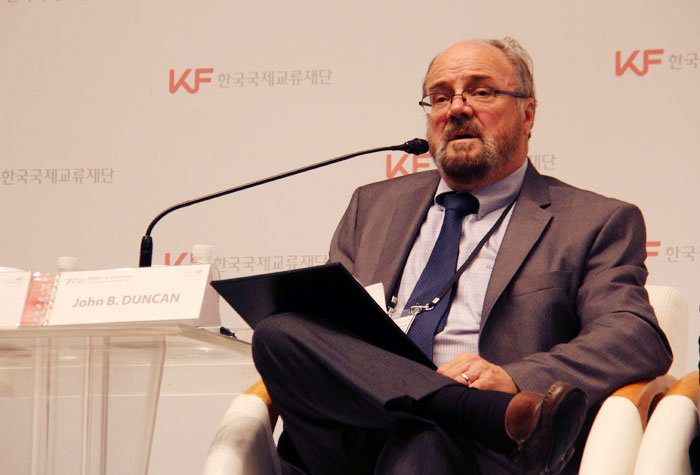
UCLA Professor John Duncan highlights the need for qualitative growth in Korean studies, while mentioning its quantitative expansion over the past ten years.
John Duncan, professor of Korean history and director of the Center for Korean Studies at the University of California Los Angeles (UCLA), said, “Between the 1990s and 2000s, Korean studies expanded in the U.S. and Canada. Recently, the popularity of Korean studies is also rising in Latin America.” The UCLA professor said that economic development, democracy and Korean pop culture have all helped Korean studies to win more popularity around the world.
“Despite the remarkable quantitative expansion over the past ten years, qualitative growth is equally important. Another problem is that many professors in the U.S. or Latin America do not know the Korean language very well. Many of them mostly study with English material,” said the professor.
“Researchers in Chinese or Japanese history should also take an interest in Korean history,” he added.
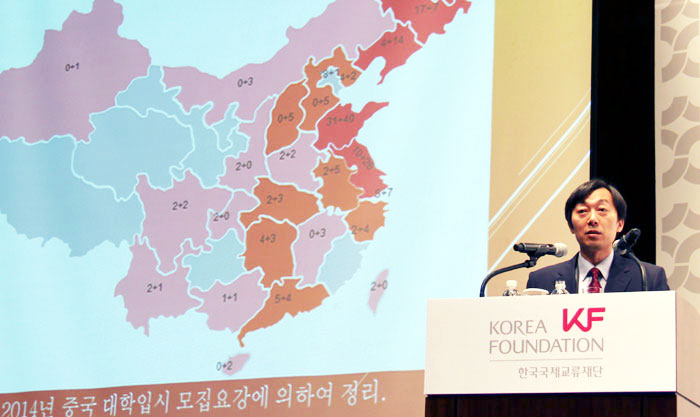
Niu Lin Jie, professor and dean at the School of Korean Studies at Shandong University, explains the increasing number of universities in China that recently opened Korean language departments.
Niu Lin Jie, professor and dean at the School of Korean Studies at Shandong University, also agreed that the Seoul-Beijing diplomatic relationship and the popularity of Korean soap operas and pop music in China have had a remarkable effect on the growth of Korean studies there.
“In 1992, when Seoul and Beijing forged their modern diplomatic relationship, only six universities in China had a Korean language department. In 2014, however, statistics showed that the number of four-year universities with Korean language departments hit 116 institutions, while there were 152 three-year colleges with such a department, and more than 20,000 students were enrolling in Korean language courses,” the Shandong University professor said.
“Korean studies in China mostly focus on the Korean language or on Korean literature. Though many universities recently opened Korean studies departments, most of them concentrate on the language or comparative research between Korean and Chinese literature,” Professor Niu said, pointing out that research into Korean politics, economics, history, philosophy or the arts are conducted comparatively less-developed in China.
He further urged that academic exchanges that focus on Korean language education need to be extended to the wider range of Korean studies. To this aim, he emphasized that more opportunities should be made in order to broaden the scope of academic exchanges centering on the Korean language to include Korean studies in general.
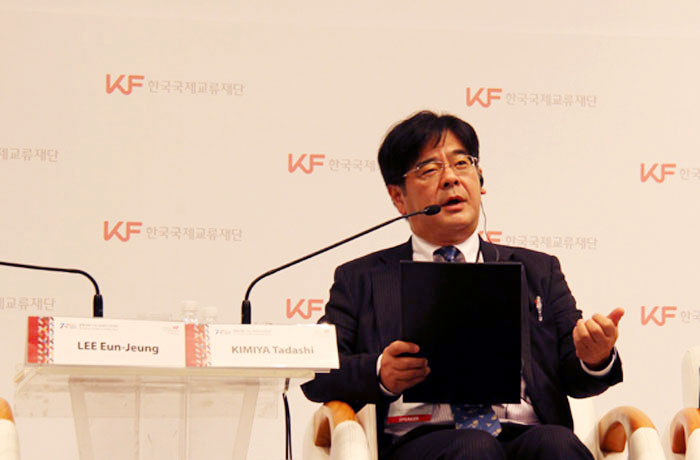
Kimiya Tadashi, professor and director at the Center for Korean Studies at the University of Tokyo, urges Korea, Japan and China to work together to find a solution for the qualitative advancement of Korean studies.
The assembly also discussed the effects of the Korea-Japan relationship on Korean studies. Kimiya Tadashi, professor and director at the Center for Korean Studies at the University of Tokyo, said, “As the Korea-Japan relationship is in a time of transition, Japan’s view of Korea is very changeable and unstable.”
“In this kind of situation, however, properly conducted research into Korean studies should be more clearly accepted by Japanese society in order to boost a more precise understanding of Korea,” said Professor Kimiya.
In this regard, he said, “It can be said that Japanese scholars mostly have exchanges between Korea and Japan, but we need to widen the scope of our exchanges to include China."
Professor Kimiya further suggested that an intellectual community involving Korea, China and Japan be made across Northeast Asia, while proposing that researchers in the three countries should seek a way to expand the quality of Korean studies.
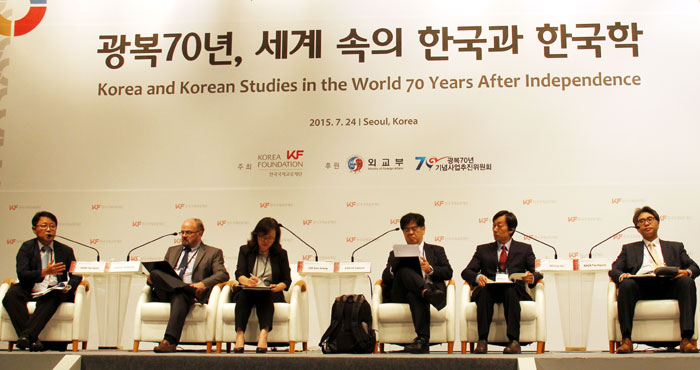
Participants in the Korean Studies Assembly 2015 all emphasize the importance of qualitative growth in Korean studies.
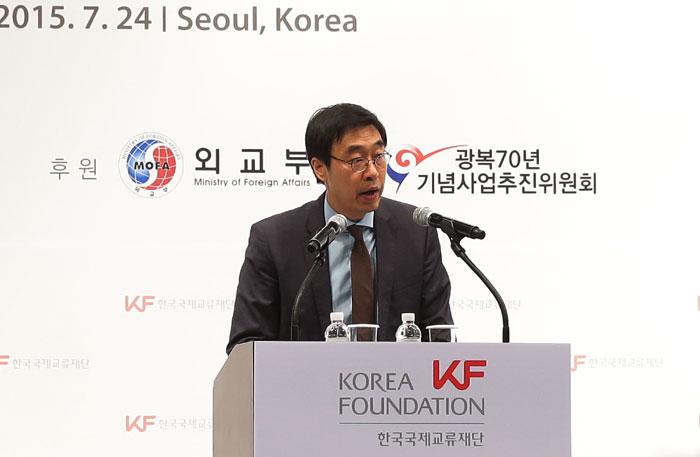
Korea Foundation President Yu Hyun-seok expresses the hope that, 'The Korean Studies Assembly 2015 can become an important watershed to seek the future direction of Korean studies.'
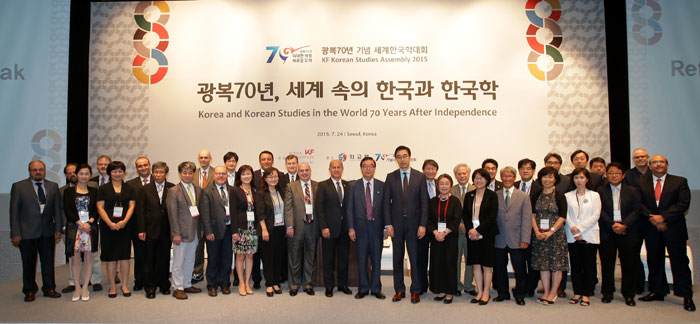
Participants in the Korean Studies Assembly 2015 pose for a group photo.
Article by Yoon Sojung
Korea.net Staff Writer
Photos: Yoon Sojung, Korea Foundation
arete@korea.net